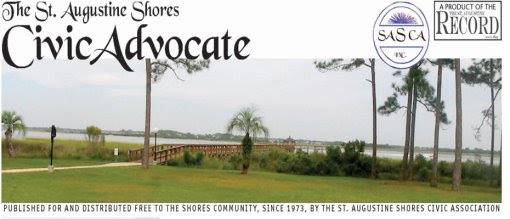The Division of Florida Condominiums, Timeshares, and Mobile Homes within the Department of Business and Professional Regulation (DBPR) is the agency charged with the responsibility of ensuring that condominium associations comply with the requirements of the Condominium Act. The Division also promulgates administrative rules necessary to implement, enforce, and interpret these laws. For condominiums, these administrative rules are found in Chapters 61B-15 through 61B-24, Florida Administrative Code. In addition, Chapters 61B-45 and 61B-50 of the Florida Administrative Code, contain the administrative rules relating to arbitration of certain disputes between unit owners and their association.
The Division handles complaints alleging violations of the Condominium Act and corresponding administrative rules related to residential condominiums. The Division will attempt to resolve complaints against developers and associations as provide in the Division’s enforcement resolution guidelines, which are based primarily on the harm caused by the alleged violation, and the association’s compliance history.
For unit owner controlled associations those issues considered to involve less harm are addressed through educational resolution rather than an imposition of penalties. Examples of such issues include failure to allow unit owners access to official records, failure to respond to a unit owner’s letter of inquiry, and failure to properly fill a vacancy on the board. Repeated violations of a similar nature will require corrective action by the association. Failure to take corrective action may subject the association to penalties.
More significant violations, such as the failure to properly propose and adopt annual budgets, failure to notice and hold annual meetings, and failure to properly conduct elections, also are addressed through educational resolution, but will require a response and corrective action from the association when warranted. Repeated violations of a similar nature will generally result in an enforcement resolution, including imposition of penalties against the association. In such instances, the Division can seek penalties of up to $5,000 in the case of a major violation and up to $2,500 in the case of a repeated minor violation.
The Division also pursues complaints against developers, and on a limited basis, against individual board members or officers of associations. In such cases, the Division has to show that such individuals have willfully and knowingly violated the law, and have failed to take corrective action after having been provided with the opportunity to do so.
RESOLVING INTERNAL DISPUTES
The Condominium Act also provides other mechanisms for resolving disputes between unit owners and associations. The first of these mechanisms is mediation, which is defined as the process involving a neutral third person acting to encourage and facilitate the resolution of a dispute between two or more parties. It is an informal and nonadversarial process with the objective of helping the disputing parties reach a mutually acceptable and voluntary agreement. A mediator’s role includes assisting the parties in identifying issues, encouraging joint problem solving, and exploring settlement alternatives. The Division maintains two lists of individuals located throughout Florida who will provide mediation for the resolution of condominium disputes. One list consists of volunteer mediators willing to provide mediation free of charge. The other list consists of mediators who provide mediation for a fee. If you wish to contact a mediator in your area, you may obtain either list by contacting the Division of Florida Condominiums, Timeshares, and Mobile Homes.
The Condominium Act also provides for mandatory non-binding arbitration of certain disputes. Arbitration is a method of solving disputes by submitting them to an impartial person who has the power to make a determination concerning the issues in controversy.
Before going to court, parties involved in condominium disputes as defined by the Condominium Act must petition the Division for mandatory non-binding arbitration. Unit owners, associations, and tenants, where the subject matter of the dispute concerns a tenant’s use of the unit, can petition the Division for arbitration.
Disputes eligible for arbitration include the board’s authority to: (1) require an owner to take action, or not to take action involving that owner’s unit, or (2) alter or add to a common element or area. In addition, disputes may be arbitrated when the association is required but fails to: properly conduct elections, give adequate notice of meetings or other actions, properly conduct meetings, or allow inspection of books and records.
Disputes excluded from the arbitration program include disagreements regarding the interpretation or enforcement of any warranty, the charging of a fee or assessment, and the collection of an assessment charged against a party. The following disputes are also excluded from the arbitration program: the eviction or other removal of a tenant from a unit, alleged breaches of fiduciary duty by one or more directors, and claims for damages to a unit based upon the alleged failure of the association to maintain the common elements or condominium property.
If you wish to file a petition for mandatory non-binding arbitration, you may obtain a copy of the petition form and rules of procedure by contacting the Division of Florida Condominiums, Timeshares, and Mobile Homes. There is a filing fee due at the time a petition is filed.
For more information, please visit the DBPR Website
"POLL QUESTION"
Should the Shores' Community Pool be open to all homeowners?
CLICK THIS LINK TO REGISTER AND VOTE
CLICK THIS LINK TO REGISTER AND VOTE
kkkkkkkkkkkkkkkkk
LATEST NEWS & NOTES
St. Augustine Shores Homeowner Association
St. Augustine Shores, Shores Service Corporation
St. Augustine Shores Condominium
Conquistador Condominium, Greens Condominium
Greens II Condominium, Fairview Condominium
Casa Bella Condominium, St. Augustine Shores News
CLICK BELOW FOR YOUR SHORES COMMUNITY NEWS


